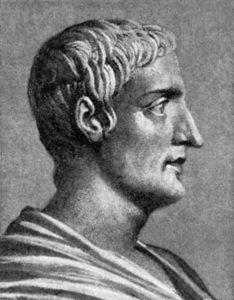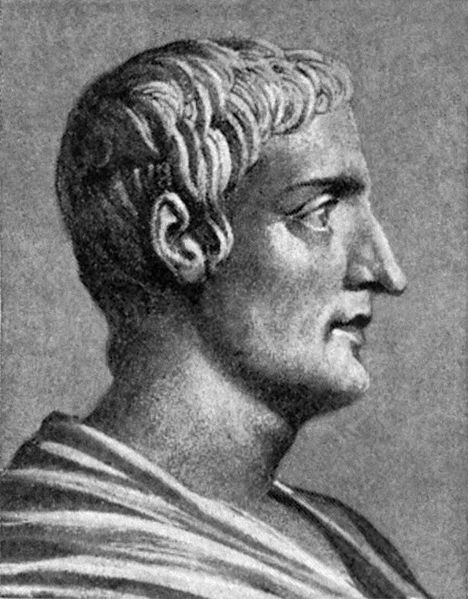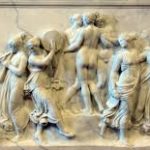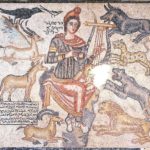Ancient Roman Historian Tacitus:
Tacitus
Tacitus was born around 56 AD. After arriving in Rome, which was believed to have happened by AD 75, he quickly began to lay down the tracks for his political career.

By 88, he was made praetor under Domitian, and he was also a member of the Quindecimviri Sacris Faciundis. From 89 to 93, Tacitus was away from Rome with his newly married wife, the daughter of the general Agricola. 97 saw Tacitus being named the consul Suffectus under Nerva. His death is datable to c. 118.
- 98 – Agricola (De vita Iulii Agricolae). This was a laudation of the author’s father-in-law, the aforementioned general Iulius Agricola. More than a biography, however, can be garnered from the Agricola: Tacitus includes sharp words and poignant phrases aimed at emperor Domitian.
- 98 – Germania (De Origine et situ Germanorum) “belonged to a literary genre, describing the country, peoples, and customs of a race.”
- Between 101 and 102- Dialogue (Dialogus de Oratoribus). This was a commentary on the state of oratory as Tacitus sees it.
- Around 109 – Histories. This work spanned the end of the reign of Nero to the death of Domitian. Unfortunately, the only extant books of this 12-14 volume work are 1-4 and a quarter of book 5.
- Unknown – Annales (Ab Excessu Divi Augusti). This was Tacitus’ largest and final work. Some scholars also regard this as his most impressive work. The date of publication and whether it was completed at all are unknown.
Ancient Roman Historian Tacitus
Tacitus’ style was very much like that of Sallust. Short, sharp phrases cut right to the point, and Tacitus makes no bones about conveying his point. His claim that he wrote history “sine ira et studio” (“without anger and partiality”) was not exactly one which is true. Many of his passages ooze with hatred towards the emperors.

Despite this seemingly obvious partisan style of writing, much of what is said can go under the radar, which is as Tacitus wanted things to be. His skill as an orator, which was praised by his good friend Pliny, no doubt contributes to his supreme mastery of the Latin language.




